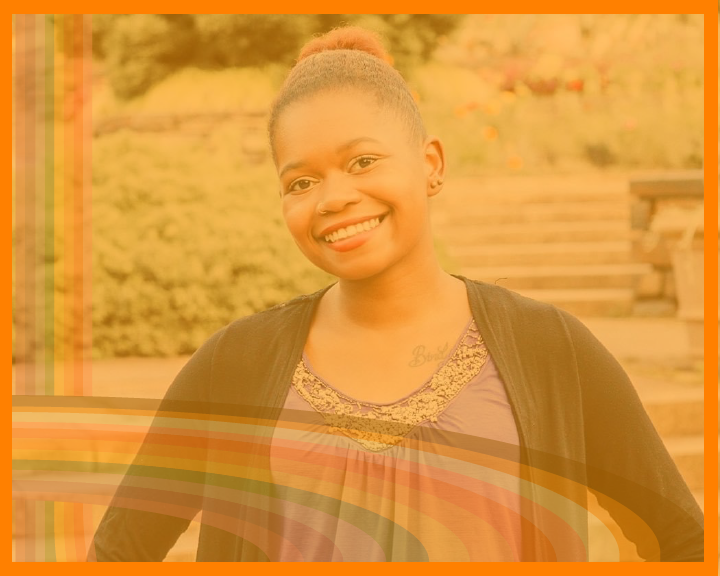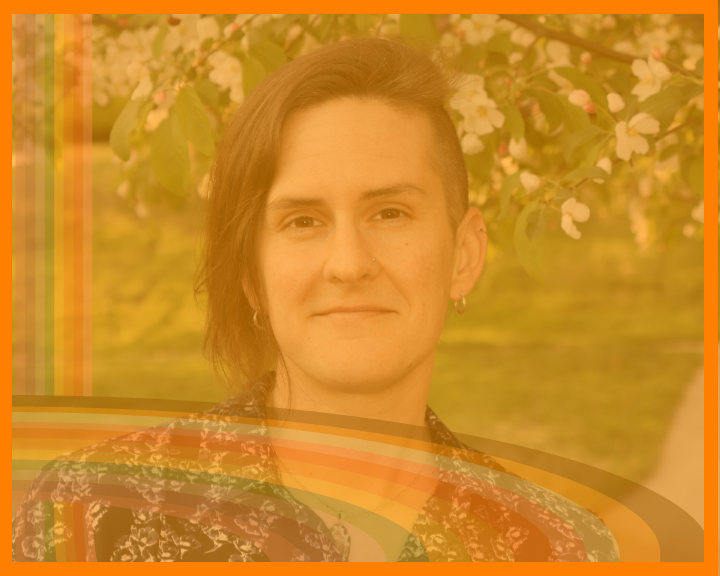Queering the Gospel of Mark: Mark 4:1-20
Mark’s Gospel uses concrete, sensory language to speak to the everyday needs of Jesus’s followers, and asserts that the kingdom of God is the here-and-now, not a lofty, disembodied hope that compels us to ignore our current realities. Mark portrays Jesus as a humble yet controversial rabbi who lived the fullness of the human experience; his salvific power exists because of his humanness, not in spite of it. By using parables, Jesus conveyed his teachings in language that is both accessible and enigmatic; readers still wrestle with these messages today, despite their deceptively simple language. The most fundamental question of this parable still remains: what is the word of God?
Mark portrays Jesus as a humble yet controversial rabbi who lived the fullness of the human experience; his salvific power exists because of his humanness, not in spite of it.
Some may say that the word of God is that Jesus came from Heaven to die for our sins, a perfect sacrifice for imperfect humans. Others may find God as they struggle through rock-bottom hopelessness and times of crisis. Still others find the word of God as a message of healing and hope, a call to justice and mercy, calling upon the humanity of Jesus and remembering His presence among all people every time we are tempted into numbness and complicity. The most beautiful (and most frustrating) thing about the word of God is that it is different for all people, and yet we all read from the same Scriptures that we all understand differently based on time and circumstance.
The “word of God” has also been used as a weapon against LGBTQIA+ people. The often-used phrase “clobber passages”[1] are aptly named, as misconstrued verses that are used like a bludgeon of shame and trauma, trying to make us cisgender and/or heterosexual, but too often just leaves us dead. But the Bible can only be used as a weapon when it’s closed.
But the Bible can only be used as a weapon when it’s closed.
Opening Scripture is a lot like the parable’s seed that fell in good soil; while the chemical composition of the soil may be ideal as it is, what makes it conducive to growth is human effort. When we challenge our preconceived notions of faith and of our identities, we act with God to till the soil, soften it, bury the seeds of our new understanding, and then wait for something new and better to emerge. The seed needs darkness as much as it needs light, and so it is with faith itself. The primordial darkness of Genesis and the nurturing darkness of the womb—representing all that is, has been, and all that is yet to come—is echoed every time we plant a seed in the ground and allow it to take root. Darkness is the home of possibility, not of terror.
When we challenge our preconceived notions of faith and of our identities, we act with God to till the soil, soften it, bury the seeds of our new understanding, and then wait for something new and better to emerge.
Humans are the seed, and our faith is the root—and the eventual harvest that comes from the cultivated soil. Only once we are allowed to bloom can the word of God be used for healing the wounds of the bludgeon, a harvest of freedom from our own limiting worldviews. The darkness of creation, the womb, and the buried seed nurture new possibilities in a way that light alone cannot. The same is true of queerness and transness themselves—inherently life-giving, allowing our truest selves to take root and to grow authentically without the pressures of scorching light. Likewise, the buried seed is emerging, no longer a seed, but not yet a plant—resisting definition but still full of life.
The sower in this parable spreads seeds across the land, and they all fall in different conditions and face different fates as a result of the sower’s actions. The first seeds fell on a footpath, trodden earth and a road well-traveled, only to be swept up as a bird’s next meal. The seeds could never take root in these conditions. Every time a queer or trans person is denied their truth, whether by internalized hate or the foreboding bludgeon of Scripture wielded in the pulpit, the seeds of our potential, and often our lives themselves, are swept away.
The second seeds fall on rocky and shallow soil, soil that is not completely hostile to growth but impossible for reaping a harvest. Oftentimes queer people embrace their truths and begin to grow, only to be faced with shame, scorching us before we can even truly bloom. This withering away is not because of the queer person’s moral failure, but rather that we do not have the roots we need to make our growth last and multiply. Likewise, we may be lured by false hope, by individuals and communities that proclaim inclusion by statement only, but as soon as we try to bloom we are withered away. When we leave our truths at the door in the name of this false and shallow inclusion, we cannot take root.
Likewise, we may be lured by false hope, by individuals and communities that proclaim inclusion by statement only, but as soon as we try to bloom we are withered away.
Still more seeds fell among suffocating thorns—representing the temptations of wealth and desire for other things (4:19) but also the temptation of complicity and conflict avoidance. When churches start to get into the hard work of queer liberation, we may find ourselves covered in thorns, suffocated by reminiscence of bygone eras, opting for cheap grace that kills the chances of growth that will ultimately benefit all. The thorns of complicity are uncomfortable but familiar, and all systems of oppression intersecting like briars kills the mission of the true Church—and creates the crown of thorns on the crucified Christ.
But not all hope is lost, because the last of the seeds fall on good soil. The purpose of parables is to get us thinking about our own lives, not as literal sowers or literal seeds, but finding ourselves in the complex cycles of human growth. Jesus’s audience understood the human labor that went into making soil truly good for a harvest. Tenderizing and tilling the soil is like the painful process of deconstruction, letting go of defensiveness and the need to be perfect so that we can embrace what is true. And waiting is the hardest part of growth: our truths may not be evident right away; we know our current state no longer represents who we are, but do not know who we are meant to be. But queerness inherently resists limitation, and that is the beauty of being queer in a hetero- and cis-normative world: that we can just grow and not be stuck in one phase of being.
Tenderizing and tilling the soil is like the painful process of deconstruction, letting go of defensiveness and the need to be perfect so that we can embrace what is true.
Likewise, the most nurturing soil is made nourishing by decay; the death of what no longer serves us (e.g. dead names, tradition, language and self-concepts which we have outgrown) can ultimately bring us new life. The transformation of chemical compounds and resurrection into newness is the greatest testament to queer and trans resilience. Although we still live in a society where resilience is necessary and seen as a badge of honor, queerness and transness also allow us to be soft, like the nurturing soil from which we were born: a genderless earthling, the adam, imbued with the breath of Life that still fills our lungs every time we speak our truth. Whenever we embrace the softness of the earth and the liminality of seedlings, allowing ourselves to fall on good soil and to be good soil, the harvest of liberation multiplies so that all may partake. The word of God is found in the darkness, in queerness and transness, in every realm of possibility that starts with even the smallest of seeds.
Likewise, the most nurturing soil is made nourishing by decay; the death of what no longer serves us (e.g. dead names, tradition, language and self-concepts which we have outgrown) can ultimately bring us new life.
[1] Biblical texts that are used to justify harm to the LGBTQIA+ community, e.g. Genesis 19:1-38, 1 Corinthians 6:9-11, 1 Timothy 1:9-10
Rev. Shelby Lewis (she/her) graduated from Vanderbilt Divinity School in December 2020 and is ordained in the Tennessee Region of the Christian Church (Disciples of Christ). She completed her B.A. in Religious Studies at Elon University, where she was a member of Phi Beta Kappa and Theta Alpha Kappa Honor Societies, as well as the recipient of Elon LGBTQIA Alumni Association’s Student of the Year Award in 2015. She has worked in service learning, university chaplaincy, disability self-advocacy, and congregational ministry, and is passionate about helping others tell their stories in brave spaces. In 2021, she began independent consulting sessions for churches seeking greater awareness and equity for people with disabilities. She lives in Nashville, TN with her two rescue cats, Lucius and Violet.



Unbound Social